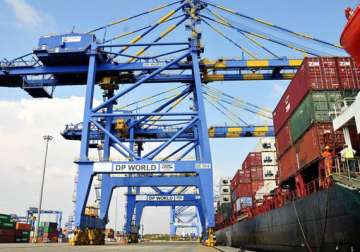New Delhi, May 7: Seeking to boost exports and bridge the ballooning current account deficit, a Reserve Bank of India (RBI) committee, on Monday, suggested a slew of measures such as introduction of differential tax regime, and increasing the scope of interest subsidy scheme for exporters.
“The global trade environment may not improve in the immediate period. There is, therefore, an urgent need to boost India's exports so that the trade deficit is narrowed down, and CAD stays within the projected cap,” the RBI said.
The Reserve Bank had constituted a technical committee on services/facilities for the exporters under the Chairmanship of RBI Executive Director G. Padmanabhan to suggest ways for improving financial support from alternative sources.
Among others, the committee has made recommendations relating to review of Gold Card Scheme for extension of export credit to exporters, appropriate inclusion of export finance under the priority sector lending, and raising of foreign currency loans on pool basis for extension of export credit to exporters.
It said there was a need to widen the scope of interest subvention to ensure larger exporter segment derive benefit from the Scheme.
The committee has recommended for “inclusion of additional sectors such as electronics and all engineering goods, especially automotive sector, and all exports originating from domestic tariff area units to SEZs”.
It said that like Singapore and Sri Lanka, which offer differential tax rates to promote exports, the Government may consider offering this facility to Indian exporters.
It also asked for early introduction of GST (Goods and Services Tax) to make the tax structures more streamlined for exporters, who incur numerous levies, such as VAT (value added tax), purchase tax, turnover tax, octroi, electricity duty, which are making the export pricing uncompetitive.
Further, the committee recommended continuation of export credit refinance policy for three years which would provide certainty in availability of funds to the banks for managing their asset-liability positions, and would also build confidence among the exporting community.
It asked for setting up of a nodal agency for borrowing in foreign currency from abroad on a pool basis, and further lend to these companies in India at competitive rates.
“Borrowing on a pool basis will increase the bargaining power of this nodal agency with overseas lender thereby ensuring cost effective solution to exporters for its technological innovation/ upgrades/ capacity expansion,” it said. Exim Bank could be nominated as the nodal agency for this initiative, it added.
CAD, which is the difference between the inflow and outflow of foreign currency, had touched a record high of 6.7 per cent in the December quarter of last fiscal year.
Exports declined by 1.76 per cent to $300.6 billion in 2012-13. The trade deficit during the period has touched an all time high of $190.91 billion.
Latest Business News
